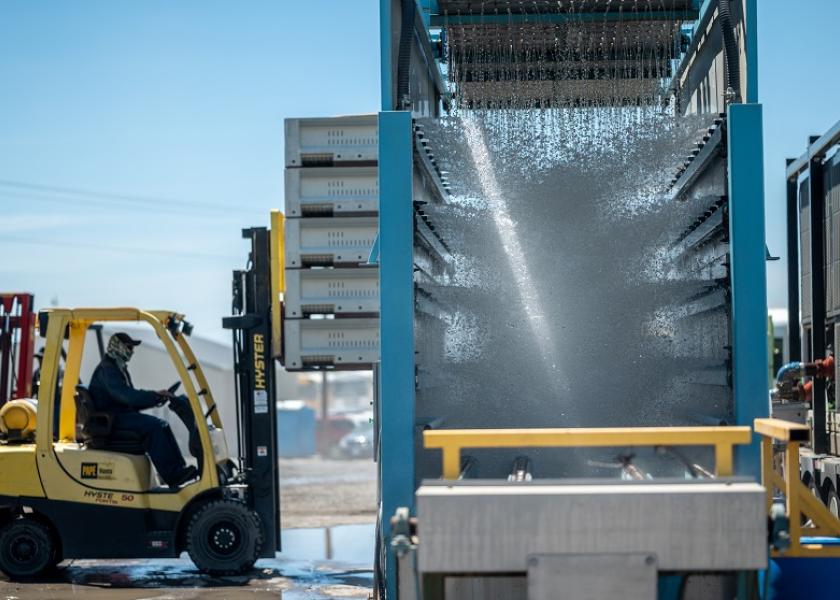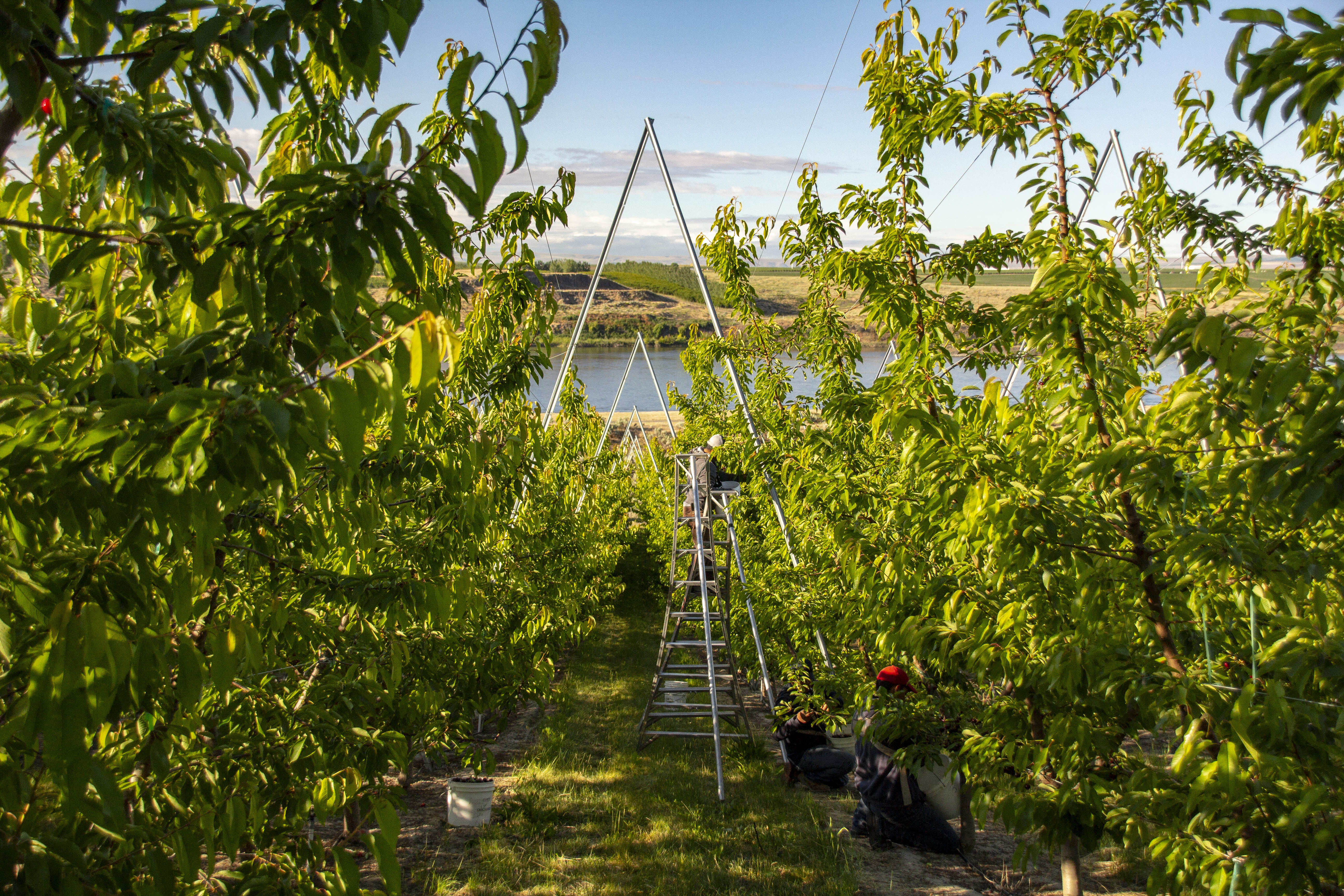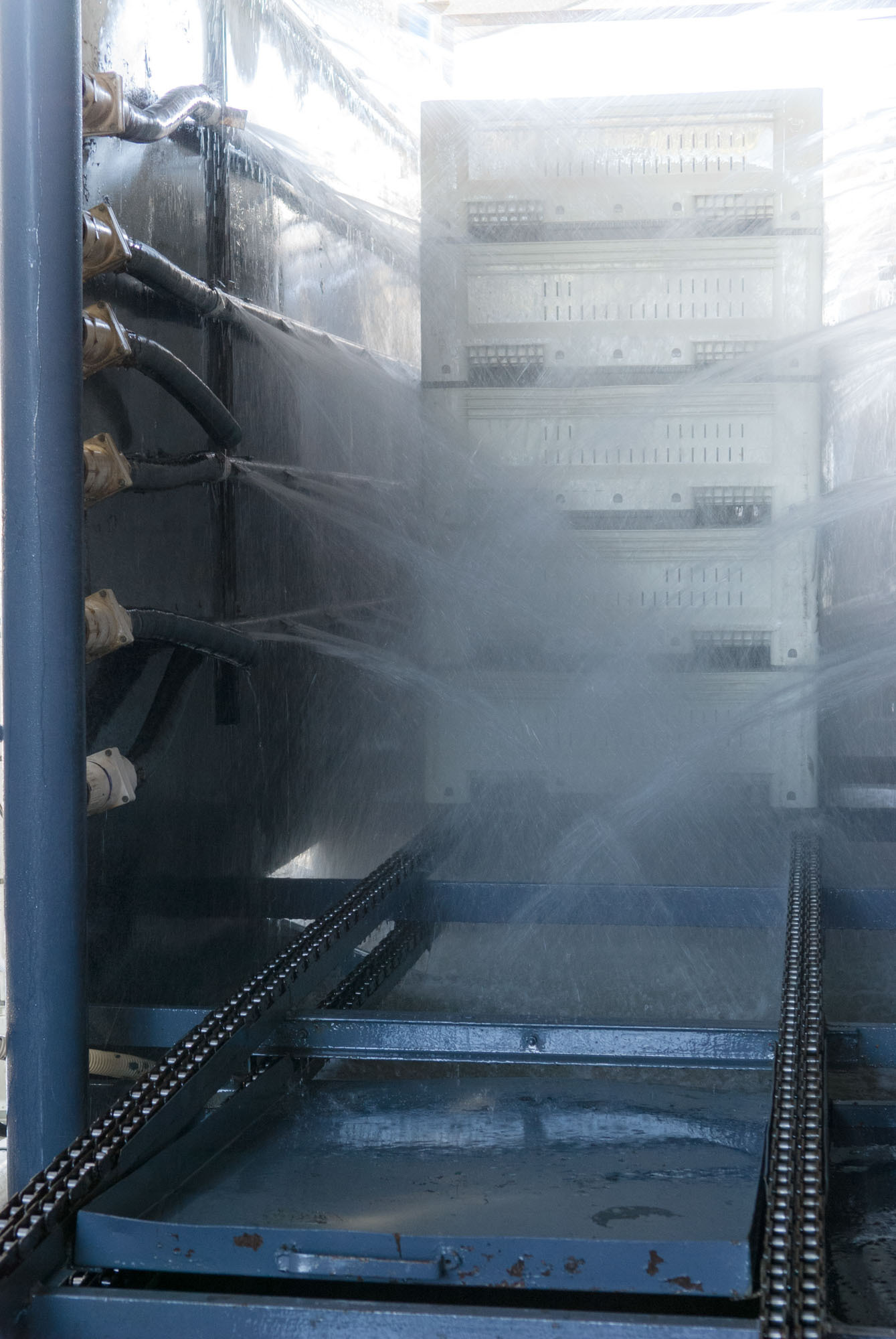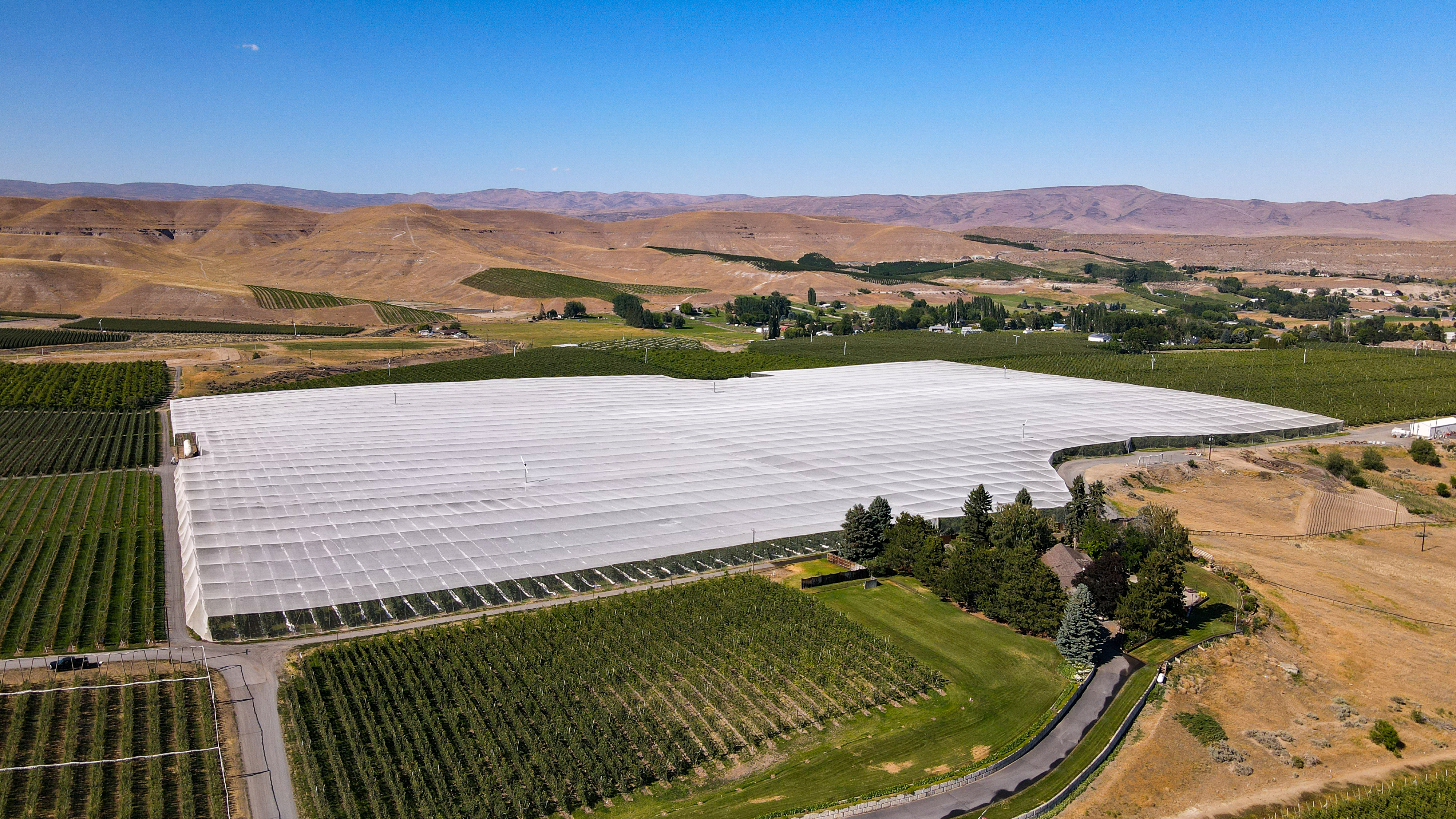Washington cherry marketers seek to beat the heat

With temperatures topping 105 degrees for several days from June 27-30 in Wenatchee, Wash., the heat was on the Northwest cherry harvest.
Shippers said the heat wave could reduce the crop volume some and hold back sizing temporarily but expressed confidence there will be plenty of high-quality Washington cherries for retailers to promote in July and into August.
Shippers said they are hydrocooling cherries and taking other steps to take the heat out of fruit and using advance sorting technology to send only strong fruit to market.
Heat backing down
High temperatures in Wenatchee reached a record 113 degrees on June 29, up from the historical average for that date of 82 degrees, according to statistics from the Weather Underground website.
Temperatures were moderating, however.
High temperatures were forecast in the high 90s to near 100 for the week of July 5.

Mac Riggan, director of marketing for Chelan Fresh, said July 1 that nighttime temperatures were cooling, with temperatures expected in the 60s for the next week, about 20 degrees cooler than in late June.
That should be positive for cherry quality, he said.
“It seems like some cherry orchards, particularly those with good foliage cover and vigor, are weathering the heat quite well,” Riggan said. “But the bottom line is, it’s going to shrink the crop a little bit, just like a rain incident would. But there is still going to be a big crop out here.”
Riggan stressed that cherry shippers have now have the advantage of advanced sorting technology.
“We have the ability, with the new packing lines with electronic sorting, to sort out any problem fruit, especially heat-affected individual fruits. The packed box is clean.”

Brianna Shales, director of marketing for Stemilt Growers, Wenatchee, said the company places its hydrocoolers near its farm locations so the fruit can be cooled within an hour of harvest.
“I think the last few days, we’ve definitely seen some shorter days of picking (because of the heat),” she said. “But overall, we are excited about the cherries that are in the market right now for the Fourth of July, and there’s still a long season ahead of us.”
Shales said Stemilt expect to be harvesting cherries well into August.
Made in the shade
One marketer said shade cloth is an important tool to reduce temperatures in the orchards.
“We are dealing with historic temperatures all over the Northwest. We have invested in the equipment and practices that lets us take these unforeseen events in stride,” said Blake Belknap, vice president of sales for Rainier Fruit Co., Selah, Wash.

“We start by covering our cherries and blueberries with shade cloth, which reduces the temperature by 10-15 degrees, instantly giving the trees and fruit a break from the intense heat. We hand-pick our blueberries rather than using machines to harvest, keeping the fruit from bruising, and preserving the crunch and flavor. The blueberries are then sent right to forced-air cooling centers in the fields, and on to our packing facility in refrigerated trucks.”
Likewise, Belknap said Rainier protects cherry quality.
“Minutes after our cherries are harvested, they are sent to hydrocoolers right in the field. They’re sent through the 34-degree water to take out that field heat. They are immediately loaded on refrigerated trucks and sent to the warehouse. Once they arrive, they will be run through another hydrocooler before being packed to ensure they’re at the right temperature to keep the crunch. With an unbroken cold chain for both blueberries and cherries the shelf life of the fruit is extended by days, the crunch is ensured, and the flavor is spot on.”
Sizing
As far as cherry sizing, Shales said the heat may have slowed sizing, which may will increase the price premium for larger cherries in the short term.
“It’ll be interesting to see the size profile of the industry’s cherries over the next week,” Riggan said. “As we transition into July varieties, they naturally grow larger fruit, and it is showing on those trees. In some of the June blocks you could see a half size drop on some of the fruit. So instead of having mostly 9½ row or 10 row, there were a few more 11 row.”







